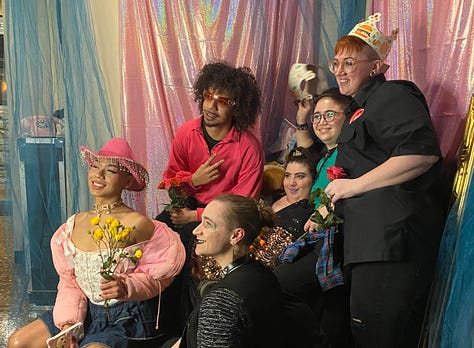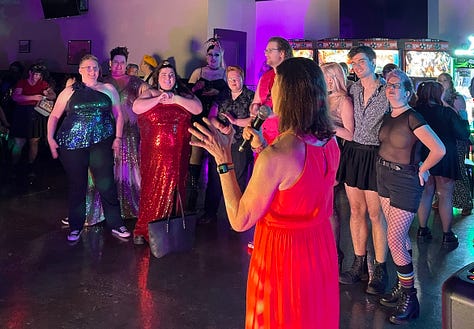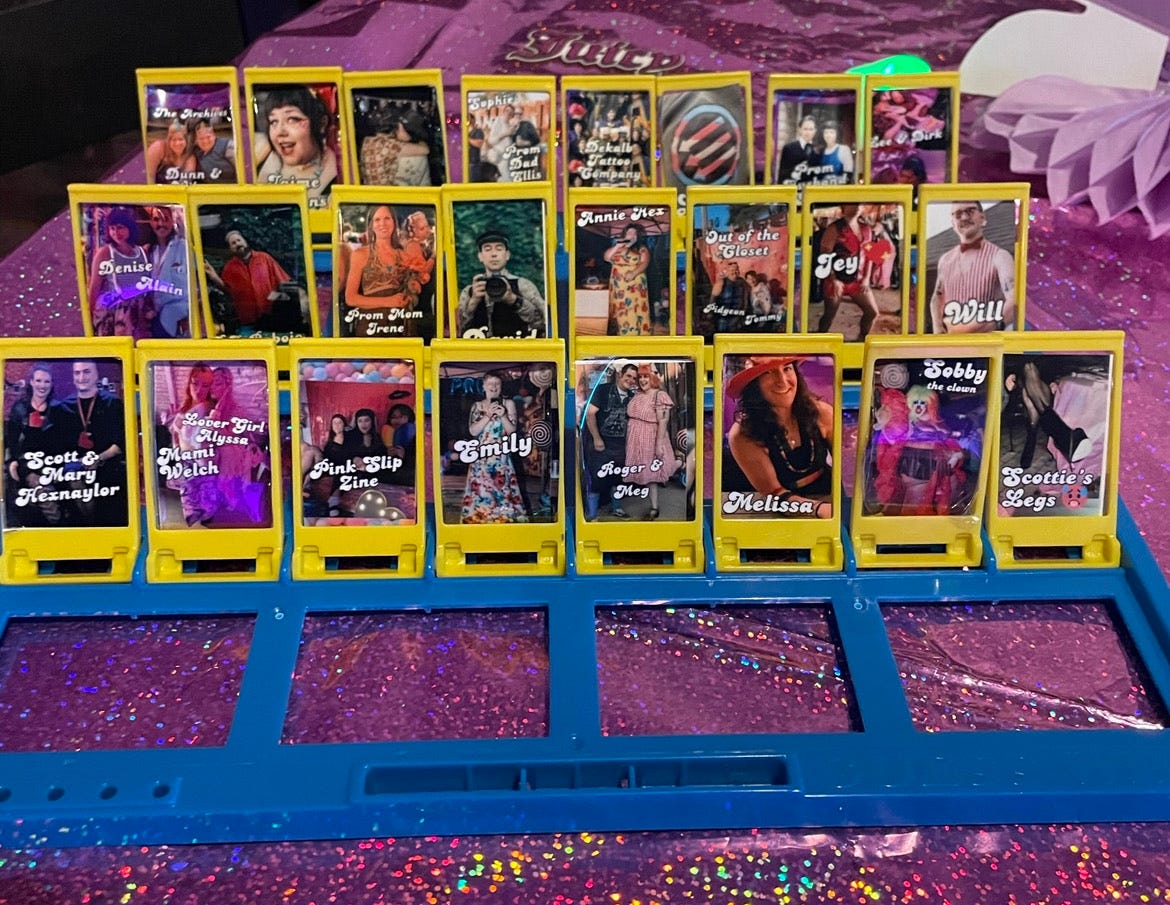the privilege and power of growing older and getting gayer.
On Nex Benedict’s Oklahoma death, gay awakenings, and queer futures.
Queering the Burbs is a regularly-published distillation of pop culture, politics and queerness written by Joe Erbentraut. If you like what you see, please consider subscribing (it’s free!), liking or sharing this piece.
I remember the first time I saw Christina Aguilera writhing in the sand in the music video for her iconic 1999 smash hit “Genie in a Bottle” so vividly.
I was probably 14 years old and the video was playing on a projector screen that had been set up in the basketball gym of my town’s YMCA. As the song goes, the music was playing and the lights were low as all of the area’s middle school students were invited to the YMCA’s Y Night. Admission cost $5 or two cans of soup to be donated to the local food pantry. It was my first time attending a dance off of school property.
As was the case with any of those early school dance experiences, it was expected that boys and girls mostly kept to opposite sides of the gym, and as a result I was standing in a row of boys gazing up at the screen. The other boys immediately inaugurated a contest to see who could come up with the most perverted remark to say in that moment, and I could practically see the saliva dripping out of their mouths as they huffed and howled like dogs in heat.
In that moment, I realized I didn’t feel the way they seemed to feel about the video, nor did I for Jennifer Lopez’s “Waiting for Tonight” or TLC’s “No Scrubs” when those videos played. Gazing at Blink-182’s various tattoos, piercings, and painted nails during “What’s My Age Again,” however, made me feel decidedly different and I knew it was an attraction I could not share with my peers. It would be some years later until I fully wrapped my head around that difference, but it was a moment—simultaneously invisible and seismic—that would kick off a period of quiet exploration fueled by a potent mix of curiosity, confusion, and chemistry.
Looking back, I know now that it was a step so tiny it was subconscious in the direction of a queer truth. If you talk to any queer or trans person, they’ll probably have their own moment in time like my Y Night memory. In the incredible 1999 film But I’m a Cheerleader starring Natasha Lyonne and Clea DuVall, the staff at the True Directions conversion therapy camp refer (crudely) to moments like these as a queer person’s “root.”
I was reminded of my “root” while DJing Annie Hex’s latest Queer Prom last night at Grainology in Batavia. The theme for the occasion was Y2K, and the experience of watching the dance floor erupt in joy to songs like “Thong Song,” “The Bad Touch,” and “Genie in a Bottle” was beyond surreal. What a privilege it is to grow older and re-experience these incredibly corny (and incredibly catchy) pop gems, except this time we were all doing it in a space where we didn’t need to dim our gifts or hide our true selves, just a mere 25 years later.



It was a beautiful night turned bittersweet as my mind never drifted far from the death of Nex Benedict. The 16-year-old nonbinary Indigenous child died just one day after they were reportedly physically attacked to the point of blacking out in their Owasso, Oklahoma school bathroom by a group of their classmates.
Multiple media outlets have reported on Benedict being bullied by their classmates, and it’s impossible to detangle their death from the rapidly rising anti-trans and anti-queer sentiment in Oklahoma including but not limited to an anti-trans bathroom law, a ban on gender transition care for minors, and a ban on the use of gender-neutral markers on birth certificates. Republican Oklahoma state senator Tom Woods last Friday went so far as to call the LGBTQ+ community “filth” in response to Benedict’s death.
Nex deserved better. All LGBTQ+ children deserve better. Nex deserved to grow up, to grow older. To get regrettable haircuts and go on terrible dates. To start a career and work terrible jobs. To feel increasingly out of touch with young people. To experience the privilege of reliving their favorite songs from their queer awakening while surrounded by fellow queers, 25 years later. They deserved a chance, the chance to chase their dreams and leave their mark. Now, very likely because of hate, that’s a chance they’ll never have. We deserve better.
We honor Nex and all victims of LGBTQ+ hate by doing exactly what we did Saturday night in Batavia. We danced, we hugged. We sang, we kissed. We ate grilled cheese and posed for the photo booth. We cried, and we hugged again. We never felt gayer. We lived.
In the words of Annie Hex, who read from her diary as well as her soon-to-be-released new book, we stay alive for nights like Queer Prom. We stay alive for the plot twist. We stay alive in spite of it all, for those who didn’t get that chance.
No links for this week, but I will share a track from Hurray for the Riff Raff, the artist also known as Alynda Segarra, who just released their stunning new album The Past Is Still Alive. The album explores themes of grief, love, and the ability to push on. My favorite track, “Colossus of Roads,” was written in one sitting by the nonbinary singer-songwriter after the Club Q gay bar shooting in Colorado Springs which left five people dead and dozens of people injured in October 2022.
I listen to this song and think of the Club Q victims. I listen to this song and think of Nex. I listen to this song and think of my chosen family, my queer community, my island of fellow misfits, and everything we’ve overcome and will continue to overcome. In an interview with Remezcla, Segarra said of the song:
“This is about us honoring each other and also honoring the danger—the good and the bad ways—that comes with living your authentic self. Or just being brave enough to pursue this outsider life.”





A powerful, necessary piece. Thank you. 💜